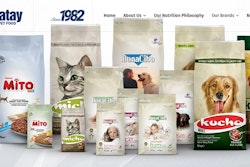
Certain U.S. pet specialty retailers may suffer due to the ongoing canine dilated cardiomyopathy issue. Prior to July 2018, grain-free seemed to following the path of the term natural to become an industry standard. Various dog food brands developed their market niche based on the presumed popularity of grain-free. Pet specialty retailers filled their stores with grain-free products.
“We estimate that the merchandising mix in independent pet is comprised of over 50% BEG [boutique, exotic and grain-free] diets,” Bryan Jaffe, managing director of Cascadia Capital said. “In some chains, it is as much as 70%. As the channel has scaled back on brands that have moved into major pet specialty and FMD, BEG diets have gained shelf-share.”
DCM and grain-free dog food investigation by FDA
Then U.S. Food and Drug Administration officials announced that they were investigating correlations among canine dilated cardiomyopathy and certain grain-free dog foods with high proportions of pulses or potatoes. A year later, grain-free dog food sales had declined, especially among the brands named by the FDA.
“If consumers shun BEG diets in a meaningful way, the channel stands to lose traffic and transactions,” Jaffe said. “While pet shoppers are not channel loyal, once you lose them they are hard to get back, especially for small box pet retailers who lack a meaningful service component to attract customers. This is a secondary risk of the DCM issue that very few people are talking about.”
Pet food companies have altered formulas and introduced new products in the wake of FDA’s investigation into DCM. Small pet food retailers may need to do something similar.
More than a year has passed since FDA warned consumers that the agency was investigating a correlation among canine dilated cardiomyopathy (DCM) and certain grain-free dog foods made with high percentages of peas, lentils or potatoes. Dog food formulators reacted to the FDA announcement and resultant consumer fears in a variety of ways, despite the lack of proven causality between DCM and specific dog diets.
Dog food formulators adapted by bringing grains back to some recipes, although not always conventional crops. Meanwhile, other brands added taurine, an amino acid involved in DCM. Taurine by itself appeared as a new dog food topper. Dog food recipes have also dropped legumes and potatoes.


















